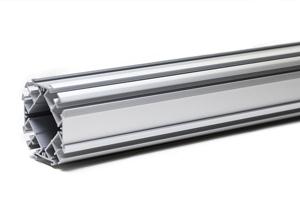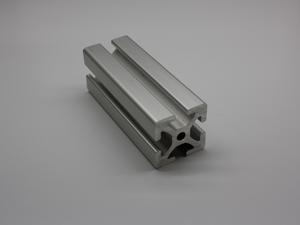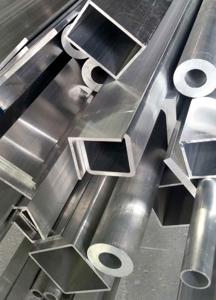Content Menu
● Understanding Aluminum Extrusion
>> Key Benefits of Aluminum Extrusion
● Why Choose Canadian Companies for Aluminum Extrusion?
>> 1. Quality Assurance
>> 2. Advanced Technology
>> 3. Comprehensive Services
>> 4. Skilled Workforce
>> 5. Local Sourcing
● Applications of Aluminum Extrusion
● The Aluminum Extrusion Process
● Visualizing the Process
● Design Considerations for Aluminum Extrusions
● Cost Considerations
● Case Studies of Successful Projects
● Future Trends in Aluminum Extrusion
● Conclusion
● FAQ
>> 1. What industries commonly use aluminum extrusions?
>> 2. How does the anodizing process enhance aluminum products?
>> 3. What are some common applications of custom aluminum extrusions?
>> 4. How do I choose the right aluminum extrusion company?
>> 5. What are the environmental benefits of using aluminum?
Aluminum extrusion has become a vital manufacturing process across various industries, thanks to its versatility, strength, and lightweight properties. In Canada, numerous companies specialize in aluminum extrusion, offering a wide range of services and products tailored to meet diverse project requirements. This article explores the advantages of choosing aluminum extrusion companies in Canada for your next project, detailing their capabilities and the benefits they provide.

Understanding Aluminum Extrusion
Aluminum extrusion is a manufacturing process that involves forcing heated aluminum through a die to create objects with specific cross-sectional profiles. This method allows for the production of complex shapes and sizes while maintaining high precision. The process begins with heating an aluminum billet to approximately 900°F (482°C), after which it is pushed through a die using a hydraulic press. The resulting extruded aluminum can be cut to desired lengths and further treated with processes such as anodizing or painting to enhance its properties and aesthetics.
Key Benefits of Aluminum Extrusion
- Lightweight: Aluminum is significantly lighter than other metals, making it ideal for applications where weight reduction is critical, such as in aerospace and automotive industries.
- Strength: Despite its lightweight nature, aluminum can be engineered to be incredibly strong, particularly when alloyed with other elements. This strength-to-weight ratio is beneficial in structural applications.
- Corrosion Resistance: Aluminum naturally forms a protective oxide layer that helps resist corrosion. Additional treatments like anodizing can further enhance this property.
- Versatility: The extrusion process allows for endless design possibilities, enabling manufacturers to create custom profiles that meet specific project needs.
- Recyclability: Aluminum is highly recyclable without losing its properties, making it an environmentally friendly choice for sustainable manufacturing practices.
Why Choose Canadian Companies for Aluminum Extrusion?
Canada is home to several leading aluminum extrusion companies that offer unique advantages:
1. Quality Assurance
Canadian aluminum extrusion companies often adhere to stringent quality standards and certifications, such as ISO 9001:2015. This commitment ensures that the products manufactured meet high-quality benchmarks, providing peace of mind for clients.
2. Advanced Technology
Many Canadian manufacturers utilize state-of-the-art technology and equipment in their extrusion processes. This investment in modern machinery allows for greater precision and efficiency in production, resulting in high-quality extruded products.
3. Comprehensive Services
Aluminum extrusion companies in Canada typically offer a full range of services beyond just extrusion. These may include design assistance, fabrication, anodizing, machining, and assembly services. Such comprehensive offerings streamline the supply chain and reduce lead times.
4. Skilled Workforce
The expertise of the workforce in Canadian aluminum extrusion companies is another critical factor. Skilled technicians and engineers contribute to innovative designs and efficient production processes, ensuring that projects are completed on time and within budget.
5. Local Sourcing
Choosing a Canadian aluminum extrusion company can reduce shipping costs and lead times associated with overseas suppliers. Local sourcing also supports the Canadian economy and promotes sustainability by minimizing transportation emissions.

Applications of Aluminum Extrusion
Aluminum extrusions are used in various industries due to their adaptability:
- Automotive: Lightweight aluminum components help improve fuel efficiency and reduce emissions.
- Aerospace: The strength-to-weight ratio of aluminum makes it ideal for aircraft structures.
- Construction: Aluminum extrusions are used in window frames, curtain walls, and roofing systems due to their durability and aesthetic appeal.
- Consumer Products: Many everyday items such as furniture frames, appliances, and electronic housings utilize aluminum extrusions for their lightweight yet sturdy characteristics.
- Renewable Energy: With the growing focus on sustainability, aluminum extrusions are increasingly used in solar panel frames and wind turbine components due to their lightweight nature and resistance to environmental factors.
The Aluminum Extrusion Process
Understanding the aluminum extrusion process can help clients appreciate the complexity involved:
1. Billet Preparation: The process begins with an aluminum billet being heated until it becomes malleable.
2. Extrusion: The heated billet is placed into a hydraulic press where it is forced through a die to create the desired shape.
3. Cooling: After exiting the die, the extruded aluminum cools rapidly to maintain its shape.
4. Cutting: Once cooled, the extruded product is cut into specified lengths.
5. Post-Processing: Additional treatments like anodizing or machining may be performed to enhance properties or finish surfaces.
Visualizing the Process
Aluminum Extrusion Process
Design Considerations for Aluminum Extrusions
When working with aluminum extrusion companies in Canada, several design considerations can optimize your project outcomes:
- Profile Design: Collaborate with engineers to create profiles that minimize material usage while maximizing structural integrity. Advanced CAD software can facilitate this process by simulating stress points and load-bearing capacities.
- Material Selection: Different aluminum alloys offer varying properties such as strength, corrosion resistance, and thermal conductivity. Selecting the appropriate alloy based on your application can significantly impact performance.
- Finishing Options: Consider how surface treatments like anodizing or powder coating will affect both aesthetics and functionality. Anodizing not only enhances corrosion resistance but also allows for color customization that can align with branding efforts.
- Assembly Requirements: If your project involves multiple components that need assembly, designing parts that facilitate easy joining (e.g., using interlocking features) can reduce assembly time and costs.
Cost Considerations
While choosing an aluminum extrusion company in Canada might seem more expensive than sourcing from overseas manufacturers initially, several factors contribute to long-term savings:
- Reduced Shipping Costs: Local suppliers eliminate international shipping fees and potential tariffs associated with importing materials from other countries.
- Lower Lead Times: Proximity allows for faster turnaround times on orders, reducing project delays caused by long shipping times from overseas suppliers.
- Quality Control: Investing in quality products upfront reduces the risk of defects or failures down the line, which can result in costly repairs or replacements.
Case Studies of Successful Projects
Several successful projects highlight the capabilities of Canadian aluminum extrusion companies:
1. Automotive Lightweighting Project: A major automotive manufacturer collaborated with a Canadian extrusion company to develop lightweight chassis components using custom-designed extrusions. This partnership resulted in a significant reduction in vehicle weight while maintaining safety standards.
2. Architectural Marvels: A renowned architectural firm utilized custom aluminum extrusions for a high-rise building's façade. The unique shapes created not only enhanced aesthetics but also improved energy efficiency through better thermal performance.
3. Renewable Energy Initiative: A solar energy company partnered with an aluminum extrusion manufacturer to produce frames for solar panels designed specifically for harsh climates. The lightweight yet durable frames contributed significantly to overall system efficiency and longevity.
Future Trends in Aluminum Extrusion
The future of aluminum extrusion looks promising as industries continue to evolve:
- Sustainability Focus: With increasing emphasis on sustainability practices across sectors, more companies are looking at recycled aluminum as a primary material source for new projects.
- Technological Advancements: Innovations such as 3D printing combined with traditional extrusion methods are emerging, allowing for even more complex designs while reducing waste during production processes.
- Customization Demand: As industries demand more tailored solutions, customization will play a crucial role in driving growth within the aluminum extrusion sector. Companies that invest in flexible manufacturing systems will likely lead this trend.
Conclusion
Choosing aluminum extrusion companies in Canada for your project offers numerous benefits including high-quality products, advanced technology, skilled labor, local sourcing advantages, and comprehensive service offerings. These factors make Canadian manufacturers an excellent choice for businesses looking to leverage the unique properties of aluminum in their designs.
By considering aspects such as profile design, material selection, finishing options, assembly requirements, cost implications, successful case studies, and future trends within the industry, you can make informed decisions that enhance your project's success while capitalizing on the strengths offered by Canadian aluminum extrusion companies.

FAQ
1. What industries commonly use aluminum extrusions?
Aluminum extrusions are widely used in automotive, aerospace, construction, consumer goods, electronics, renewable energy sectors due to their lightweight and durable nature.
2. How does the anodizing process enhance aluminum products?
Anodizing increases corrosion resistance while allowing for various aesthetic finishes through dyeing options that can withstand UV exposure without fading.
3. What are some common applications of custom aluminum extrusions?
Custom aluminum extrusions can be found in window frames, heat sinks for electronics, structural components in buildings, specialized machinery parts as well as solar panel frames due to their lightweight nature.
4. How do I choose the right aluminum extrusion company?
Consider factors such as quality certifications (like ISO), range of services offered (design assistance & fabrication), technological capabilities (modern machinery), customer reviews & past project success when selecting an extrusion partner.
5. What are the environmental benefits of using aluminum?
Aluminum is highly recyclable without losing its properties; recycling requires only about 5% of the energy needed to produce new aluminum from ore which significantly reduces environmental impact compared to other materials like steel or plastic.






















